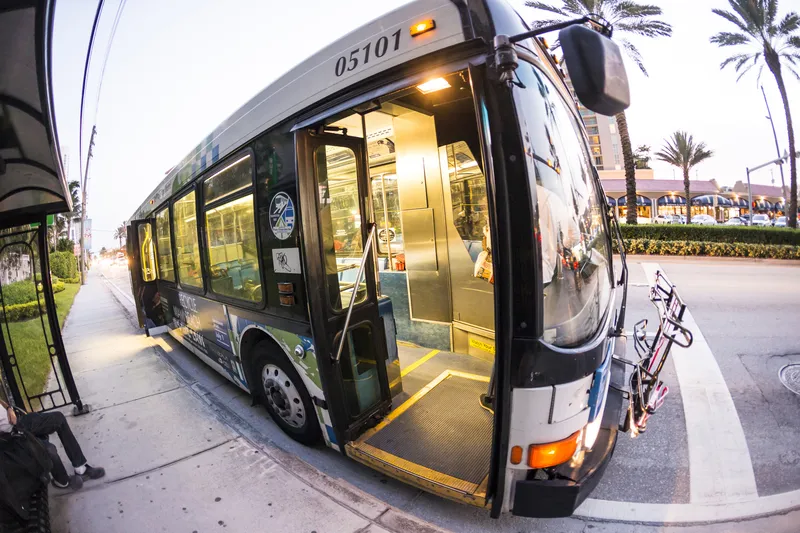The city of Glasgow has won a Future Cities Demonstrator grant from the Technology Strategy Board (TSB), a body set up by the UK government in 2007 to stimulate technology-enabled innovation. The grant, worth US$37.8 million, is intended to make Glasgow one of the UK's first smart cities; the money will be used on projects to demonstrate how a city of the future might work. Plans include better services for citizens, with real-time information about traffic and apps to check that buses and trains are on tim
January 25, 2013
Read time: 3 mins
The city of Glasgow has won a Future Cities Demonstrator grant from the 2231 Technology Strategy Board (TSB), a body set up by the UK government in 2007 to stimulate technology-enabled innovation.
The grant, worth US$37.8 million, is intended to make Glasgow one of the UK's first smart cities; the money will be used on projects to demonstrate how a city of the future might work.
Plans include better services for citizens, with real-time information about traffic and apps to check that buses and trains are on time. Other services promised include linking up the CCTV cameras across the city with its traffic management unit in order to identify traffic incidents faster.
The city council will also create an app for reporting issues such as potholes and missing bin collections. Analytical software and security cameras will be used to help identify and prevent crime in the city and monitor energy levels to find new ways of providing gas and electricity to poorer areas where fuel poverty is a big issue.
Glasgow was one of thirty cities in the UK bidding for the money, with the shortlist including London, Peterborough and Bristol. Birmingham, Sunderland and London are also beginning to roll out smart city technologies.
"Glasgow has some quite extreme challenges - it has the lowest life expectancy of any city in the UK for instance - and the hope is that if we bring together energy, transport, public safety and health it will make it more efficient and a better place to live," said Scott Cain, the TSB's project leader for Future Cities. All data collected in the project will be available so that other cities can see it. "The thinking behind it is to have somewhere in the UK where firms can look at the efficiencies, the investments and how you can address the challenges of a city," he added.
Making the announcement, Universities and Science Minister David Willetts said, "With more people than ever before living in our cities, they need to be able to provide people with a better quality of life and a thriving economy. From transport systems to energy use and health, this demonstrator will play a key part in the government's industrial strategy and give real insight into how our cities can be shaped in the future.”
Scotland's Deputy First Minister Nicola Sturgeon commented, "Generations of talented Scots have helped cement Glasgow's global reputation for innovation and creativity, and I am delighted the city has won its bid to secure the £24m Future Cities demonstrator."
The grant, worth US$37.8 million, is intended to make Glasgow one of the UK's first smart cities; the money will be used on projects to demonstrate how a city of the future might work.
Plans include better services for citizens, with real-time information about traffic and apps to check that buses and trains are on time. Other services promised include linking up the CCTV cameras across the city with its traffic management unit in order to identify traffic incidents faster.
The city council will also create an app for reporting issues such as potholes and missing bin collections. Analytical software and security cameras will be used to help identify and prevent crime in the city and monitor energy levels to find new ways of providing gas and electricity to poorer areas where fuel poverty is a big issue.
Glasgow was one of thirty cities in the UK bidding for the money, with the shortlist including London, Peterborough and Bristol. Birmingham, Sunderland and London are also beginning to roll out smart city technologies.
"Glasgow has some quite extreme challenges - it has the lowest life expectancy of any city in the UK for instance - and the hope is that if we bring together energy, transport, public safety and health it will make it more efficient and a better place to live," said Scott Cain, the TSB's project leader for Future Cities. All data collected in the project will be available so that other cities can see it. "The thinking behind it is to have somewhere in the UK where firms can look at the efficiencies, the investments and how you can address the challenges of a city," he added.
Making the announcement, Universities and Science Minister David Willetts said, "With more people than ever before living in our cities, they need to be able to provide people with a better quality of life and a thriving economy. From transport systems to energy use and health, this demonstrator will play a key part in the government's industrial strategy and give real insight into how our cities can be shaped in the future.”
Scotland's Deputy First Minister Nicola Sturgeon commented, "Generations of talented Scots have helped cement Glasgow's global reputation for innovation and creativity, and I am delighted the city has won its bid to secure the £24m Future Cities demonstrator."









